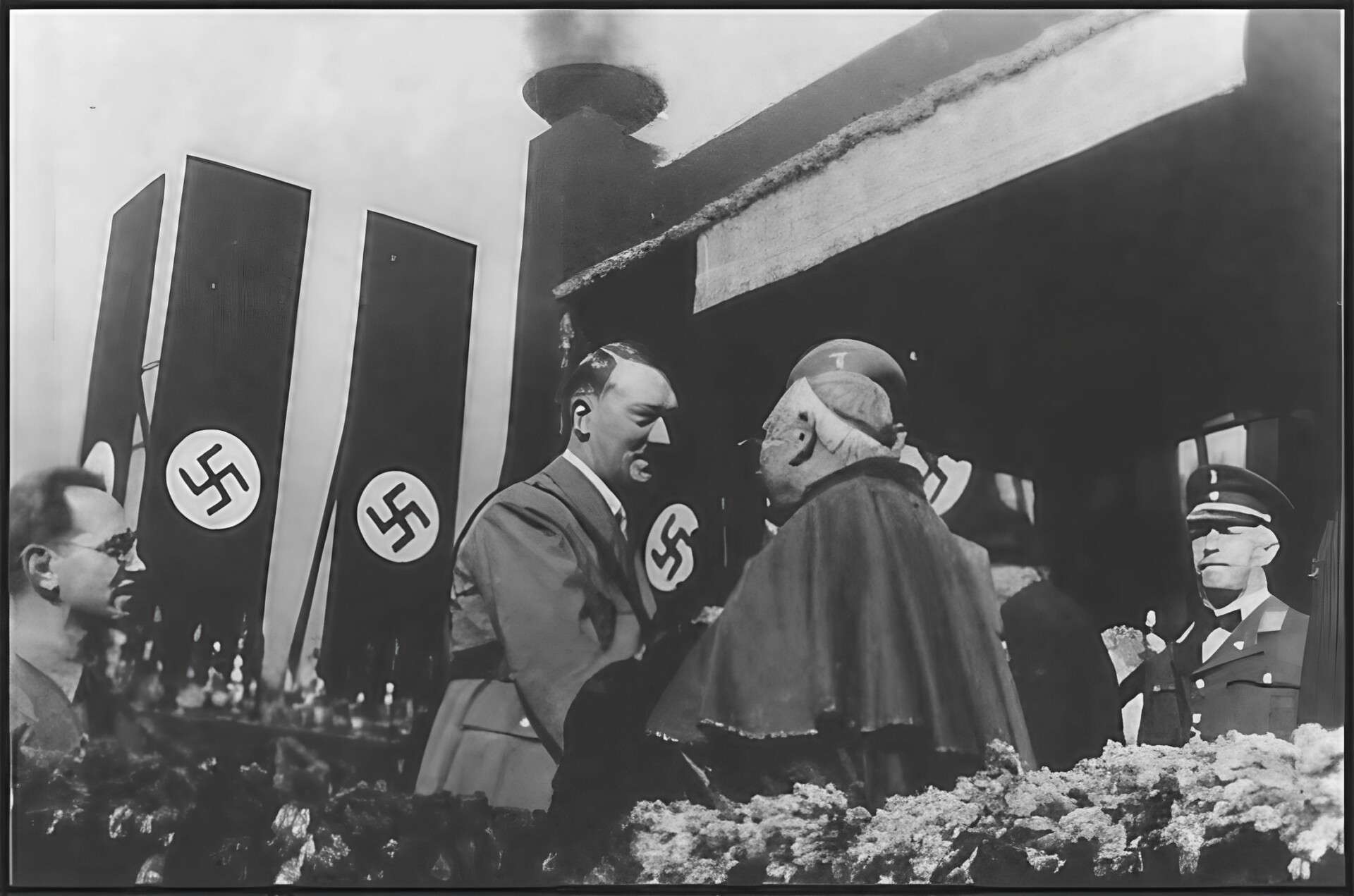Sin is often perceived as a harmful or pernicious action, both to oneself and to others. These actions can include stealing, killing, lying, fornication, among others. Undoubtedly, each of these actions is a sin in the eyes of God. However, sin goes beyond visible and tangible acts; it also encompasses the omission of doing what God has commanded us to do. Scripture says: “If anyone, then, knows the good they ought to do and doesn’t do it, it is sin for them.” James 4:17. This shows us that, from God’s perspective, failing to do good is as sinful as doing wrong. For God, there is no distinction between the two; both represent a departure from His will and holiness.
God, in His justice and holiness, does not judge according to human standards. One common mistake is believing that God uses the same measure we use to evaluate good and evil. In human thinking, a “good person” is someone who is honest, friendly, cheerful, and avoids trouble. Conversely, we tend to view a “sinner” as someone involved in drugs, deceit, violence, adultery, or theft. However, in God’s eyes, sin is not defined by the perceived severity of the act but by disobedience to His commandments. God considers any transgression of His law—whether great or small—as sin. Even an action we might justify or see as harmless can be seen as sin in God’s eyes.
For God, a sinner is not only someone who commits immoral or harmful acts but also someone who fails to do what He has commanded. This means that sin is not limited to what we do but also includes what we fail to do. When God calls us to act justly, to show mercy, to love our neighbor, and to help those in need, failing to respond to these calls also constitutes sin. There is no valid excuse for inaction in the face of the good we know we ought to do but fail to do. This, in God’s eyes, is as serious as any act of wickedness.
This perspective on sin reveals a much higher standard than human criteria. While humans often minimize or justify certain actions based on circumstances, God makes no such distinctions in His judgment. He evaluates our hearts and actions according to His holiness and perfection. Scripture is clear: “For all have sinned and fall short of the glory of God.” Romans 3:23. This condition includes both sinful actions and omissions. For God, any deviation from His law, whether in what we do or fail to do, is sin. This calls us to a level of obedience and purity that we can only reach through His grace and a life of continuous repentance.
The path to an authentic relationship with God requires deep self-examination and the acknowledgment of our faults, not only in our actions but also in our omissions. In His love and mercy, God calls us to a life of transformation and repentance. His desire is not simply that we avoid evil but that we actively seek good and obey His will at all times.
What Is the Difference Between an Unconverted Sinner and a Christian Sinner?
Before God, there is truly no difference between the two, as both are sinners. There is often a mistaken belief that when someone becomes a Christian, they are automatically exempt from any judgment or responsibility for sin. However, this is not entirely true. Someone might say: “We Christians have been forgiven of our sins from the moment we believed in Jesus as our personal Savior.” Or they might say, “There is now no condemnation for those who are in Christ Jesus,” or perhaps, “Jesus came to forgive our sins.”
All these statements are rooted in Christian faith, and indeed, Jesus came into the world to bring forgiveness and salvation to those who believe in His name. However, this forgiveness comes with the expectation of a transformed life, reflecting obedience to God’s will and an ongoing commitment to turning away from sin.
However, even though Jesus offers forgiveness to all who believe, this forgiveness is not unconditional. There are clear requirements for living a life according to God’s will, and the forgiveness God grants comes with one condition: not to continue in sin. God’s grace is not a license to sin without consequence; on the contrary, it is a call to live a transformed life, far from practices that offend God and contradict His teachings.
The story of the woman caught in adultery, as told in the Gospels, powerfully illustrates the reality that no one is free from sin. The Pharisees brought before Jesus a woman caught in the act of adultery, expecting Him to confirm the condemnation they believed she deserved. To the Pharisees, certain sins were more severe and “damaging” than others; they considered moral or sexual sins deserving of public and exemplary punishment. However, Jesus demonstrated that sin, regardless of its nature or perceived severity, remains sin. In God’s eyes, there is no distinction between “greater” and “lesser” sins; every transgression of His law is an offense to His holiness.
It is likely that the Pharisees harbored in their hearts one or more of those “small” sins they considered insignificant. For humans, it is easy to point out the obvious faults in others, as the Pharisees did with the woman, and therefore they insisted on accusing her harshly. Jesus, however, responded with wisdom and authority: “Let any one of you who is without sin be the first to throw a stone at her.” Hearing this, their consciences convicted them, and one by one, from the oldest to the youngest, they walked away without daring to condemn her. The account continues: “Jesus straightened up and asked her, ‘Woman, where are they? Has no one condemned you?’ ‘No one, sir,’ she said. ‘Then neither do I condemn you,’ Jesus declared. ‘Go now and leave your life of sin.’” John 8:1-11.
This moment is revealing because Jesus did not excuse the sin of anyone present. Both the Pharisees and the woman were confronted in their sin. The difference lies in their response: while the woman, accused and vulnerable, received God’s forgiveness with humility, the Pharisees walked away, convicted by their own conscience but without obtaining forgiveness, as they did not seek Jesus with a repentant heart.
The phrase “Go now and leave your life of sin” is significant in this story because it is not merely advice but a command she was to obey. Jesus did not offer her forgiveness without commitment; instead, He gave her a new opportunity to live a life apart from sin. Sin, from any angle, remains the same: it is an offense against God, and justifying it is a way of deceiving ourselves. The Pharisees, in their hypocrisy, tried to appear innocent, believing they were not guilty of serious sins like adultery. However, Jesus made them see that, even if they were not guilty of adultery, their hearts still harbored sin, perhaps in the form of lies, pride, or resentment.
This encounter shows that God’s forgiveness and grace are available to all but also reminds us of the seriousness of His call to a life of holiness. We cannot use forgiveness as an excuse to continue sinning. Jesus Himself, at the end of the encounter, instructed the woman to change her life, saying, “Go now and leave your life of sin.” Here we see that forgiveness comes with the expectation of transformation. Scripture affirms: “The one who does what is sinful is of the devil, because the devil has been sinning from the beginning. The reason the Son of God appeared was to destroy the devil’s work.” 1 John 3:8. This teaching emphasizes that the continuous practice of sin is incompatible with the life of a genuine believer.
God, in His love and justice, desires that all who follow Him live in holiness and apart from sin. The grace and forgiveness that Jesus offers do not exempt us from the responsibility to obey and live according to God’s commandments. God’s mercy, as shown in the story of the adulterous woman, is abundant and available, but it also comes with a call to transformation and the continuous rejection of sin. Sin, no matter how small it may seem, separates us from God, and only through sincere repentance and a commitment to change can we draw near to Him and live in the fullness of His love and forgiveness.
The apostle John teaches that anyone who practices sin continually aligns themselves with the devil and his works. This is because continuous and deliberate sin shows a lack of repentance and a willingness to justify wrong actions instead of changing them. Some, instead of repenting, attempt to justify themselves by saying, “God already knows me and knows that I am weak.” With this attitude, instead of drawing closer to God’s holiness, they drift further away from His glory and presence. This excuse only reveals a lack of desire to live in conformity with God’s will, choosing complacency over transformation.
God’s purpose for His children is that they live in holiness, refusing to tolerate sin in their lives. He desires that we be perfect as He is perfect. This perfection does not mean we will never make mistakes but that we live in a state of constant repentance and a desire to improve, with the goal of reflecting His character. Justifying sin is a form of self-deception; it is a way of closing our hearts to the transformative work that God wants to do in us. The Bible exhorts us to live in obedience to God’s commandments, as doing so reflects His holiness and makes us resemble Him in character. Scripture says: “As obedient children, do not conform to the evil desires you had when you lived in ignorance. But just as he who called you is holy, so be holy in all you do; for it is written: ‘Be holy, because I am holy.’” 1 Peter 1:14-16.
The holiness God demands is neither optional nor a suggestion; it is a clear and essential command for those who wish to live in communion with Him. Being holy means turning away from all forms of sin, living in repentance, and actively seeking to please God in everything we do. This separation from sin is a reflection of our relationship with God and our transformation through His Spirit. Scripture also calls us to pursue perfection in our spiritual lives. Jesus Himself expressed this in His teachings when He said: “Be perfect, therefore, as your heavenly Father is perfect.” Matthew 5:48.
This call to perfection is an invitation to aspire to live according to the divine standard, not to settle for a mediocre life of faith. While we know that achieving complete perfection is impossible by our own strength, it is the goal toward which God calls us to strive. This path of holiness and perfection is evidence of our love and devotion to God. It shows that we desire to honor Him with our lives and not merely receive His forgiveness as a “credit card” to continue sinning. On this journey, God does not leave us alone; He strengthens and guides us through the Holy Spirit, who helps us overcome sin and live in conformity with His will, as our flesh constantly seeks to sin. “So I say, walk by the Spirit, and you will not gratify the desires of the flesh. For the flesh desires what is contrary to the Spirit, and the Spirit what is contrary to the flesh. They are in conflict with each other, so that you are not to do whatever you want.” Galatians 5:16-17.
God’s grace is abundant, and His mercy reaches us, but both come with a call to obedience and a transformed life. God not only invites us to receive His forgiveness but also exhorts us to live in holiness and sin no more. Jesus’s command to the adulterous woman is the same for all of us: “Go now and leave your life of sin.” This is not merely a suggestion; it is a commitment we must undertake if we wish to live in communion with God and at the center of His will.
Is God Demanding Holiness and Perfection Knowing That We Are Incapable of Fulfilling This Demand?
Not at all. When God commands us to be holy and perfect, He does so because He knows it is possible, as He has provided the means for us to achieve it. Just as Adam, who was created in holiness and lived in close relationship with God, we too are called to live in that communion. Adam was holy and walked in God’s presence without barriers, but that communion was broken when Eve sought wisdom outside of God’s will, and Adam followed her voice, disobeying the divine command. With this action, sin entered humanity, and with sin came spiritual death—that is, separation between humanity and God—as mentioned in Genesis 2:9.
However, two thousand years ago, that separation was overcome through the work of Christ. The veil that separated us from the Most Holy Place, where God’s presence dwells, was torn through Jesus’s sacrifice on the cross. This is a powerful demonstration that God desires to restore the relationship that once existed between Him and humanity. The death of His only Son is the ultimate proof of this desire; God wants us to have the same communion with Him that Adam experienced at the beginning of creation, as described in Genesis 2:16. The sacrifice of Jesus opened the way for us to enter God’s presence without hindrance, inviting us to live a life of holiness and obedience.
In Eden, Adam had the opportunity to live eternally, as God did not forbid him from eating from the tree of life. This tree symbolized eternal life in communion with God. However, after disobedience, Adam was expelled from the garden precisely to prevent him from eating from that tree, as doing so would mean living forever in a state of sin and separation from God. The serpent, cunning and aware of the significance of this tree, knew that if Adam and Eve remained in their state of purity, they would live eternally in God’s presence. But by falling into sin, Adam lost that intimate relationship with God. Sin erected a wall of separation between humanity and its Creator; disobedience brought spiritual death, the rupture of communion with God, as seen in Genesis 3:23-24.
The expulsion from the garden demonstrates that sin has profound and eternal consequences. Sin is not just an act of disobedience; it creates a separation between humanity and God. By disobeying, Adam and Eve lost the fullness of living in the divine presence, and this separation brought with it the impossibility of living eternally in that communion. God is holy, and sin cannot dwell in His presence. This is why sin distances humanity from God and establishes a barrier that prevents a full relationship with Him.
However, Christ’s work on the cross serves as a reminder that this barrier can be torn down. Jesus’ death and resurrection restore the way to God, offering us the opportunity to live in holiness and be reconciled with our Creator. Through Jesus, God invites us to overcome the separation caused by sin and to live in a deep, eternal relationship with Him.
Sin is the only thing that separates us from God.
Sin is the barrier that prevents humanity from enjoying a full relationship with God. This is the barrier we must tear down to reach God’s presence, as in His holiness and perfection, He cannot tolerate any impurity, stain, or anything similar in His people. Scripture exhorts us to live in purity, saying: “To present her to himself as a radiant church, without stain or wrinkle or any other blemish, but holy and blameless.” Ephesians 5:27. To be in communion with God and to enter again into the paradise He has prepared, it is essential to live free from evil and sin, as described in Revelation 22:1-4.
Humanity, at its beginning, became hostile to God when it decided to turn away from His ways and commandments. This hostility continued for generations and became the obstacle that prevented humanity from experiencing full communion with its Creator. However, Jesus Christ came into the world to reconcile humanity with God. Through His sacrifice on the cross, He broke down the barrier of hostility that separated us from God and restored the way to peace and communion with Him.
Jesus came to save what was lost, primarily the intimate relationship between God and humanity. As He Himself said: “For the Son of Man came to seek and to save the lost.” Luke 19:10. Now, through faith in Jesus Christ, we have a glorious hope: the possibility of being called friends of God and overcoming the hostility that kept us far from Him.
The condition for restoring this friendship with God is clear: obeying His commandments. Jesus said: “You are my friends if you do what I command. I no longer call you servants, because a servant does not know his master’s business. Instead, I have called you friends, for everything that I learned from my Father I have made known to you.” John 15:14-15. This friendship with God is not automatic; it is conditional on our willingness to obey His will and follow His commandments. Jesus Christ is the only way back to the Father, from whom we were separated for so long, as Scripture affirms: “For through him we both have access to the Father by one Spirit.” Ephesians 2:18.
Still, it is important to remember that even those who have believed in Christ can lose their communion with God if they choose to disobey His commandments and continue in sin. Deliberate sin not only distances us from God’s presence but also has serious spiritual consequences, endangering our relationship with Him and with His Spirit.
Scripture warns about the consequences of willfully sinning with full knowledge of the truth: “If we deliberately keep on sinning after we have received the knowledge of the truth, no sacrifice for sins is left, but only a fearful expectation of judgment and of raging fire that will consume the enemies of God. Anyone who rejected the law of Moses died without mercy on the testimony of two or three witnesses. How much more severely do you think someone deserves to be punished who has trampled the Son of God underfoot, who has treated as an unholy thing the blood of the covenant that sanctified them, and who has insulted the Spirit of grace? For we know him who said, ‘It is mine to avenge; I will repay,’ and again, ‘The Lord will judge his people.’ It is a dreadful thing to fall into the hands of the living God.” Hebrews 10:26-31.
The seriousness of sinning deliberately after knowing the truth and experiencing God’s grace is underscored in this passage. The warning is clear: those who continue to sin, even after being saved by Christ, are scorning Jesus’ sacrifice and rejecting the work of the Spirit of grace. While God is patient and merciful, He is also just and will not take lightly the deliberate sin of His children. As the author of Hebrews expresses, it is terrifying to fall into the hands of the living God for those who consciously reject His grace.
God calls us to live a life of holiness and obedience, separating ourselves from sin and actively seeking His presence. His desire is for every believer to remain in communion with Him, ensuring that sin does not interfere in this relationship. The salvation offered by Jesus Christ is not merely liberation from eternal punishment but an invitation to a transformed life—one that reflects God’s holiness and purity in every aspect.
Christians have the obligation to remain sinless.
The writer of Hebrews addresses Christians, reminding us of our responsibility to live in holiness and avoid sin. Those of us who have received the knowledge of the truth are called to live a life of purity and obedience to God. The warning is explicit: if we continue to sin deliberately after knowing the truth and experiencing God’s grace, we face God’s wrath and judgment. We cannot take Christ’s sacrifice or His call to holiness lightly. As Scripture says, “The Lord will judge his people,” and if we sin willfully, there remains no more sacrifice for sins but only a “fearful expectation of judgment.”
The true gospel of the Kingdom urges us to live without sin. However, it acknowledges that, as humans, we may still stumble. In such cases, we have the assurance that Jesus intercedes for us before the Father. As the apostle John writes: “My dear children, I write this to you so that you will not sin. But if anybody does sin, we have an advocate with the Father—Jesus Christ, the Righteous One.” 1 John 2:1. This verse reminds us that, although we are called not to sin, we have an advocate in Jesus who intercedes on our behalf when we fall. His intercession is an act of love and mercy, giving us the opportunity to repent and reconcile with God.
The good news is that Jesus, as our eternal High Priest, continuously intercedes for us before the Father. However, this intercession is not unconditional; it requires genuine and sincere repentance on our part. Jesus is the mediator of a new covenant, ensuring us better access to God’s grace, as long as we live in obedience and repentance. Scripture declares: “Because of this oath, Jesus has become the guarantor of a better covenant. Now there have been many of those priests, since death prevented them from continuing in office; but because Jesus lives forever, he has a permanent priesthood. Therefore, he is able to save completely those who come to God through him, because he always lives to intercede for them.” Hebrews 7:22-25.
This passage teaches that Jesus’ priesthood is unique and eternal; He continually intercedes for those who come to God through Him. His work is perpetual, and His priesthood has no end. This intercession is a source of hope and strength for believers, signifying that we always have access to forgiveness and restoration when we approach Him with a repentant heart. Jesus’ role as our intercessor enables us to live in the certainty that we can be at peace with God, provided our attitude toward sin is one of rejection and we strive to live in conformity with His commandments.
Our responsibility as Christians is to strive to live without sin. God has given us the means to do so through Jesus’ work and the guidance of the Holy Spirit. While total perfection is challenging to achieve, our calling is to avoid sin and stand firm in the truth. If we stumble, we can trust that Jesus intercedes for us, but this should not be taken as an excuse to live in disobedience. His intercession is an immense gift, and every time we rely on it, we must do so with a repentant heart, acknowledging the seriousness of sin and the need to maintain a relationship of holiness with God.
The intercession of the High Priest was vitally important.
In the time of the Mosaic Law, the responsibility of interceding for the people fell upon the Levitical priests, who were charged with offering animal sacrifices on behalf of sinners, whether individuals or the entire community, depending on the situation. When someone sinned, the priest would sacrifice a lamb or a calf without blemish to atone for that person’s sin. This ritual symbolized substituting the sinner’s life with the life of the animal, fulfilling the divine law. As the book of Leviticus states: “Say to the Israelites: When anyone sins unintentionally and does what is forbidden in any of the Lord’s commands—if the anointed priest sins, bringing guilt on the people, he must bring to the Lord a young bull without defect as a sin offering for the sin he has committed. He is to present the bull at the entrance to the tent of meeting before the Lord. He is to lay his hand on its head and slaughter it there before the Lord.” Leviticus 4:2-4.
This sacrificial system highlighted the need for atonement and reconciliation with God, emphasizing the weight of sin in His eyes. Each sacrifice served as a reminder that sin could not go unpunished and required payment—a life—to cover the offense. However, these animal sacrifices were temporary; they could not truly cleanse sin permanently. They were a shadow of what was to come, a symbolism pointing to the perfect sacrifice of Jesus Christ, the Lamb of God who takes away the sin of the world once and for all.
Despite this clear teaching in the Bible, it is difficult to understand how so many Christians today believe that their sins are automatically and perpetually forgiven without the need for continual repentance or Jesus’ daily intercession. They think that by accepting Jesus as their Savior, forgiveness covers all their sins—past, present, and future—like a “spiritual credit card,” where sins are accumulated but never truly paid for. This perspective distorts the reality of the gospel and the holiness of God.
The truth is that Christ’s sacrifice at Calvary was sufficient for salvation and the forgiveness of sins, but this forgiveness is neither unconditional nor automatic. It requires a living and active relationship with Jesus and depends on our willingness to live in repentance and obedience. Jesus’ intercession, as our eternal High Priest, is ongoing, but it is not a license to sin deliberately. His sacrifice is an act of love and grace that we must honor through a transformed life. As Scripture says: “For we do not have a high priest who is unable to empathize with our weaknesses, but we have one who has been tempted in every way, just as we are—yet he did not sin. Let us then approach God’s throne of grace with confidence, so that we may receive mercy and find grace to help us in our time of need.” Hebrews 4:15-16.
Jesus is our intercessor before the Father, and His sacrifice remains effective every day for those who seek to live in His light. However, many Christians seem to forget the need to continually draw near to Him, believing that once saved, they can live without Christ’s daily intercession. This belief diminishes Jesus’ work and the call to live in continual repentance and dependence on God. In reality, Jesus’ sacrifice was an open door into God’s presence, but it requires a constant response of obedience and gratitude from us.
The work of Jesus on the cross was not a singular event that automatically and impersonally covers sins. His sacrifice demands an active response, a desire to live a holy life, and a constant relationship with Him. Each day, we need His intercession, and each day we are called to repent of our faults and seek His forgiveness with a sincere and contrite heart. Jesus’ sacrifice was sufficient to redeem us, but its value and efficacy require us to live a life of surrender, honoring the work of our High Priest, who intercedes for us without ceasing.
Sin acts as a chain that binds Christians and separates them from God’s presence. Every time someone falls into sin, they move away from communion with God and place themselves in a spiritually vulnerable position. For this reason, Scripture teaches us that those born of God do not live in the practice of sin: “We know that anyone born of God does not continue to sin; the one who was born of God keeps them safe, and the evil one cannot harm them.” 1 John 5:18. This statement emphasizes that God’s nature is sinless, and as His children, we should reflect that holiness in our lives. If we have truly been born of God, sin should not be a constant practice in us but rather something we reject and fight against with all our strength.
Scripture clearly exhorts us not to sin, and this command must not be taken lightly. However, absurdly, some preachers have taught their congregations that sin is not a serious issue and that even if we sin here on earth, our sins will automatically be erased in heaven without the need for repentance. This idea deeply contradicts the Word of God, which emphasizes the necessity of genuine repentance for forgiveness. Jesus said: “I tell you, no! But unless you repent, you too will all perish.” Luke 13:5. This means repentance is indispensable for salvation, and without it, there is no forgiveness of sins.
As long as we live, God gives us the opportunity to repent of our sins and correct our path. God’s grace is available to us, but it is a gift we must accept with a repentant heart. Scripture is clear on this matter: “Just as people are destined to die once, and after that to face judgment.” Hebrews 9:27. This means that after death, there will be no second chance to repent; what awaits us is the judgment of God, where each of us will have to give an account of our actions.
Who said Christians will not be judged?
There is a dangerous lie that has led many to believe that as Christians, we will not be judged. This false teaching claims that once we are saved, we can live carefree because God loves us regardless of whether we sin or not. However, this belief is not only incorrect but can also lead many Christians to condemnation. God’s Word is clear in stating that Christians will be judged and that our actions will be evaluated before God. It will not be a “grand gala dinner” where we simply receive rewards and inheritances but a judgment where we will give an account for every action and decision.
Scripture states this emphatically: “For it is time for judgment to begin with God’s household; and if it begins with us, what will the outcome be for those who do not obey the gospel of God?” 1 Peter 4:17. This verse reminds us that as believers, we are subject to God’s judgment and that our actions will be examined in the light of His justice. We cannot afford to live carelessly, thinking our actions have no consequences; on the contrary, we must live in holiness and obedience, knowing that one day we will account for each of our deeds.
Thanks be to God for Jesus Christ, who offered Himself as the perfect sacrifice and, as the immortal High Priest, continues to intercede for us to atone for our sins. He is our mediator, and His intercession is a constant source of grace for those who draw near to God with repentance. As Scripture says: “But because Jesus lives forever, he has a permanent priesthood. Therefore he is able to save completely those who come to God through him, because he always lives to intercede for them.” Hebrews 7:24-25.
The continuous intercession of Jesus not only assures us of forgiveness but also gives us the strength to live in holiness and overcome sin. His sacrifice was not an excuse to live in disobedience but an open door so that, through His grace, we can remain close to God and live in a constant relationship of communion with Him. Each day, His intercession gives us the opportunity to correct our ways and renew our commitment to live for God, knowing that holiness is essential in our relationship with Him.
In conclusion, sin is the fundamental barrier that separates humanity from full communion with God. The gravity of sin lies not only in its visible acts but also in its very essence, which is disobedience to the divine will and the breaking of our relationship with God. From the times of the Mosaic Law, sin has required an act of atonement and reconciliation. However, those temporary sacrifices were fulfilled in the perfect sacrifice of Jesus Christ, who offers us complete redemption and calls us to live in holiness. Jesus, as our eternal High Priest, continuously intercedes for us, providing the grace necessary to overcome sin and live in an intimate relationship with the Father.
Nevertheless, this work of grace is not a license for complacency. As Christians, we are called to take seriously our responsibility to turn away from sin and live in holiness. The gospel of the Kingdom urges us not to sin and to live in obedience. We know that if we stumble, Jesus is our advocate before the Father, but the attitude of the believer should be one of continual repentance and constant rejection of sin. Scripture is clear: we must account for our actions, and judgment begins with the house of God. It is not a judgment of eternal condemnation for those who are in Christ, but it is a judgment that calls us to accountability and to live up to the holiness God expects of us.
This calling is a reminder that God’s love is perfect, but it is also just. God’s grace and mercy are abundant, but His holiness demands that His children reflect His character. Living in holiness is not a burden but an opportunity to experience the fullness of a relationship with God. Christ’s intercession gives us the strength and hope necessary to live in accordance with His will and assures us that each day we can draw near to God with a repentant heart, trusting in His forgiveness and transformative grace.
Therefore, this is a call to every Christian: let us reject sin in all its forms, seek holiness with a sincere heart, and remember that our relationship with God is our greatest treasure. Through the work of Christ and the power of the Holy Spirit, we can live in victory over sin and experience deep and eternal communion with our Creator. Let us respond to this grace with a renewed commitment of obedience and love toward God, living a life that reflects the light of Christ in a world that so desperately needs His truth, for: “No one who lives in him keeps on sinning. No one who continues to sin has either seen him or known him.” 1 John 3:6.
![]()








